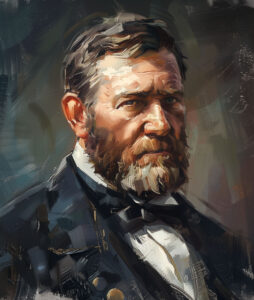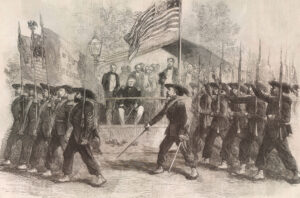Lincoln’s Battle With God: A President’s Struggle With Faith and What It Meant for America
Stephen Mansfield, Thomas Nelson
In the introduction to his latest work on the history of faith in America, Stephen Mansfield readily acknowledges the pressure any author faces in writing about Abraham Lincoln. “Nearly every Christian denomination has claimed him for their own,” Mansfield writes. “Each persuasion finds in Lincoln a reflection of itself; each seeks to explain his greatness as a product of its beliefs.”
But unlike in Mansfield’s previous books, which have explored the religious views of George W. Bush and Barack Obama, chronicling the 16th president’s religious journey defies easy description or categorization. Scholars have long debated the nature and depth of Lincoln’s faith. Was he a deist? Theological liberal? Many of his greatest lines and metaphors (“a house divided”; “better angels of our nature”; etc.) come from the Bible, yet he never attended church on a regular basis.
Mansfield leads us on a fascinating voyage through the theological twists and turns of the future president’s thinking, as well as the rough-and-tumble frontier life of a country still discovering itself. We are reminded that before Lincoln was the man from Springfield revered by generations of schoolchildren, he was the boy from Kentucky and Indiana and the young man from New Salem, Ill. During his formative years, Lincoln seemingly took a series of steps away from traditional religion, transforming from a staunch Calvinist to the author of an unpublished booklet denying most tenets of the Christian faith.
Mansfield traces the beginning of Lincoln’s return to faith to his entry into politics in the 1840s. Of course, an “infidel” such as Lincoln would never have stood a chance in politics. And while Mansfield admits it is hard to gauge the genuineness of his religious reawakening at first, by 1849 his journey back to God is reflected in the historical record. When Lincoln’s father-in-law, Robert S. Todd, died that year, the future president came upon a book by Springfield minister James D. Smith as he went through Todd’s effects. Lincoln was jarred by Smith’s words, and after his 3-yearold son Eddie died the following year, he turned to the pastor for comfort and counsel. The two men found ample opportunity to discuss Christianity and God together, as well as evil and suffering.
Lincoln was still viewed as an infidel by the clergy in Springfield when he ran for president in 1860, but the horrors of the Civil War and the personal tragedies the Lincolns suffered during their tenure in the White House apparently served to bolster his faith. Mansfield argues from Lincoln’s correspondence and published writings—most significantly the Emancipation Proclamation and his Second Inaugural Address— that by the end of his life he had embraced a view of God’s omnipotence and man’s role in carrying out divine will. It’s also possible that Lincoln’s friendship with Phineas D. Gurney, pastor of the New York Avenue Presbyterian Church in Washington, helped to solidify the president’s ideas.
Mansfield’s exploration of Lincoln’s White House years is frustratingly short, however. The book ends with the November 1863 Gettysburg Address, leaving readers to speculate how the war’s latter years might have influenced Lincoln’s spiritual journey (though there is an epilogue on the 1865 inauguration). Still, any student of Lincoln, religion or American history will find much to mull over in Lincoln’s Battle With God.
Originally published in the April 2013 issue of Civil War Times. To subscribe, click here.




